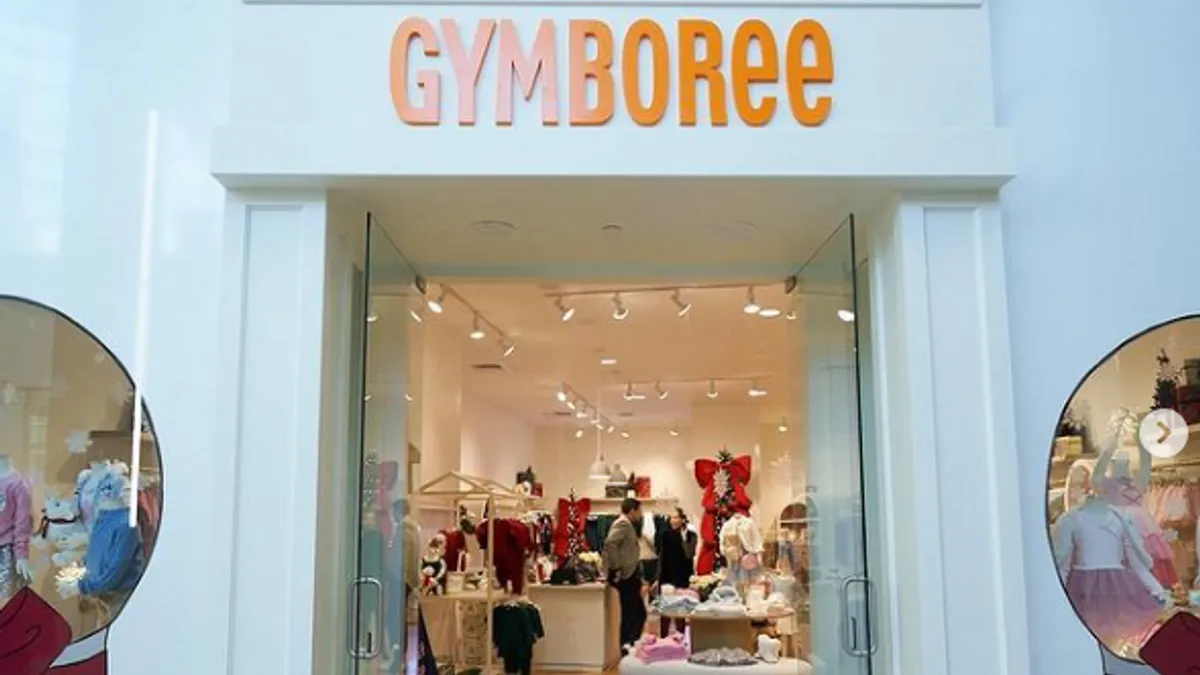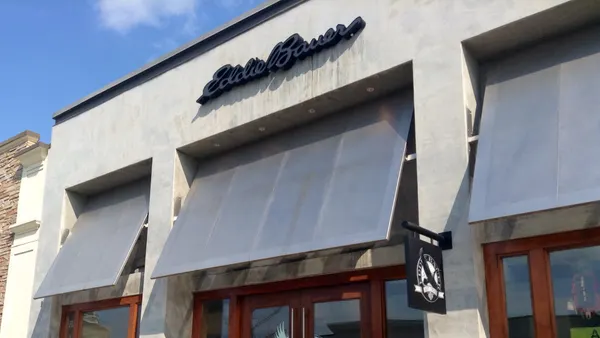Dive Brief:
- In a return to brick and mortar, parent company The Children’s Place has opened its first Gymboree store at the Garden State Plaza in Paramus, New Jersey, according to a Nov. 20 press release.
- The store features children’s clothing and accessories. “This is more than a store launch; it’s the beginning of a bright new chapter for Gymboree,” Claudia Lima-Guinehut, Gymboree brand president, said.
- In a separate announcement, The Children’s Place on Monday reported an 18.8% drop in net sales to $390.2 million in its Q3 earnings. Net income fell nearly 48% to $20 million year over year, and comparable sales decreased over 17% for the quarter, “largely driven by the planned decrease in e-commerce revenue,” according to the company.
Dive Insight:
The Children’s Place is “eager to refocus” on its store portfolio, which it says is a critical piece of its omnichannel strategy.
The company plans “to further invest in real estate while continuing to strengthen our landlord relationships,” Muhammad Umair, president and interim CEO of The Children’s Place, said in the company’s third-quarter earnings announcement.
The company said it attributed a decrease in brick-and-mortar revenue in Q3 to a lower store count and lower transactions.
The Children’s Place recently appointed a head of real estate. Philip Ende now leads the company’s real estate strategy and operations. He previously spent more than 27 years at Simon Property Group.
The Children’s Place underwent significant changes this year. Saudi investment firm Mithaq Capital acquired a majority state in the company this spring. Then, former CEO Jane Elfers exited the company in May after reaching a “mutual agreement” with the company. Upon her departure, Umair was named as the company’s president and interim CEO.
The focus on real estate is a change from the company’s recent past. The Children’s Place accelerated planned store closures during the pandemic and went through a round of layoffs to drive profitability.
The Children’s Place owns Gymboree after acquiring its longtime rival out of bankruptcy in 2019. It owns its namesake brand along with Sugar & Jade and PJ Place. The company currently owns two digital storefronts and more than 500 stores in North America.














